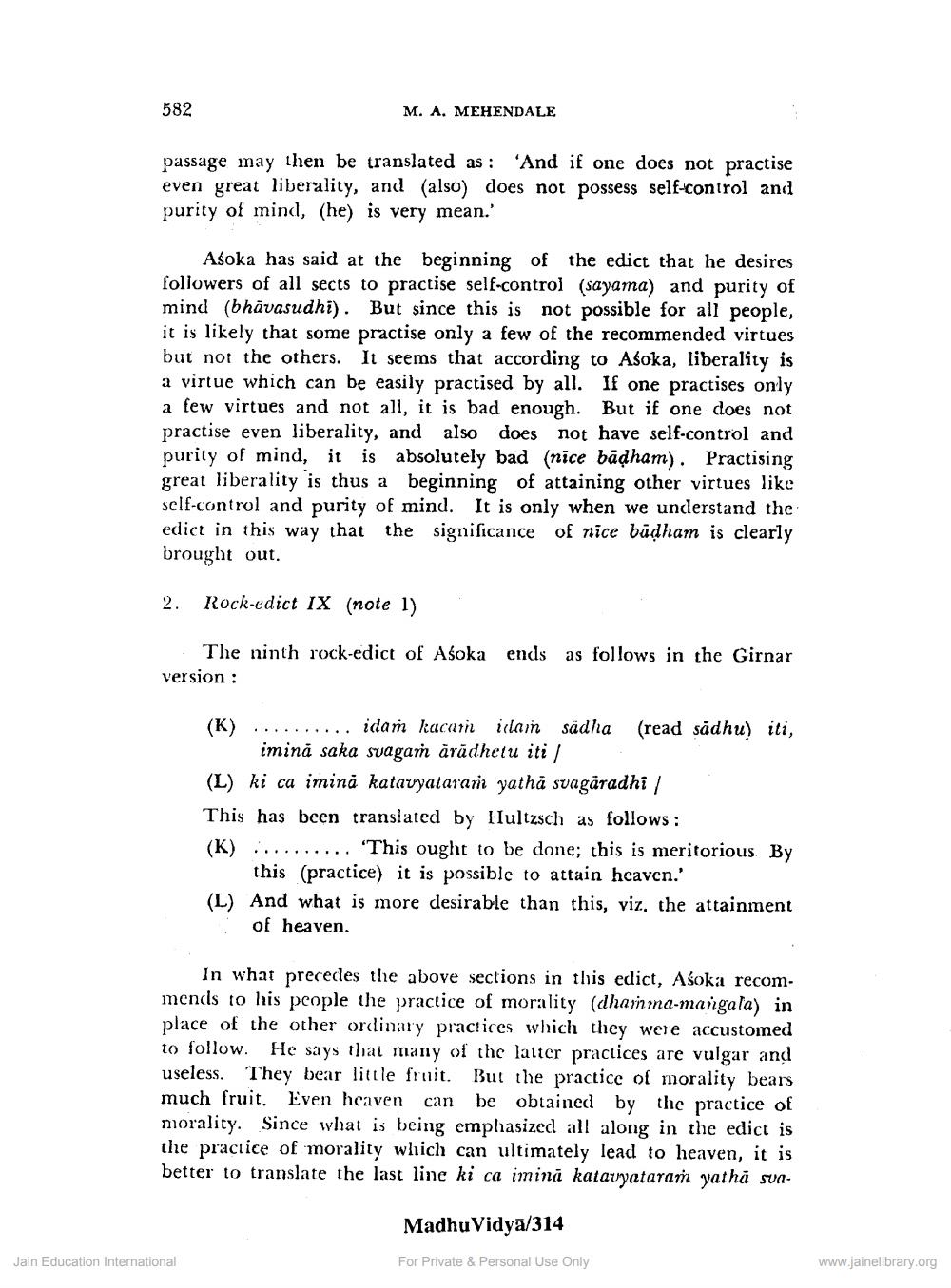________________
582
M. A. MEHENDALE
passage may then be translated as: 'And if one does not practise even great liberality, and (also) does not possess self-control and purity of mind, (he) is very mean.'
Aśoka has said at the beginning of the edict that he desires followers of all sects to practise self-control (sayama) and purity of mind (bhavasudhi). But since this is not possible for all people, it is likely that some practise only a few of the recommended virtues but not the others. It seems that according to Aśoka, liberality is a virtue which can be easily practised by all. If one practises only a few virtues and not all, it is bad enough. But if one does not practise even liberality, and also does not have self-control and purity of mind, it is absolutely bad (nice badham). Practising great liberality is thus a beginning of attaining other virtues like self-control and purity of mind. It is only when we understand the edict in this way that the significance of nice badham is clearly brought out.
2. Rock-edict IX (note 1)
The ninth rock-edict of Aśoka ends as follows in the Girnar version :
(K)
idam kaca idam sädha idam sadha (read sadhu) iti, imina saka svagam àradhetu iti / (L) ki ca imina katavyataram yatha svagaradhi | This has been translated by Hultzsch as follows: (K) .. This ought to be done; this is meritorious By this (practice) it is possible to attain heaven." (L) And what is more desirable than this, viz, the attainment of heaven.
In what precedes the above sections in this edict, Aśoka recommends to his people the practice of morality (dhamma-mangala) in place of the other ordinary practices which they were accustomed to follow. He says that many of the latter practices are vulgar and useless. They bear little fruit. But the practice of morality bears much fruit. Even heaven can be obtained be obtained by the practice of morality. Since what is being emphasized all along in the edict is the practice of morality which can ultimately lead to heaven, it is better to translate the last line ki ca imina kataryataraṁh yatha sun
Jain Education International
Madhu Vidya/314
For Private & Personal Use Only
www.jainelibrary.org




